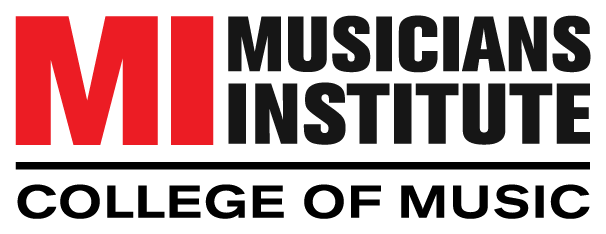Are you considering a career in the audio engineering field and wondering if going to an audio engineering school is worthwhile? Here are ten great reasons to go to an audio engineering school, also known as a sound school.
You might be considering a career in audio engineering because you love making music and you think it might be fun to do it for a living. You might be thinking of working in the audio industry because you want an exciting job in the music industry or even become a famous producer someday. The good news is that you would be right, a career in audio engineering can help you do all of those things.
In the past, audio engineers worked their way up through the system. College graduates working in audio engineering had typically earned a bachelor’s degree in electrical engineering, rather than in audio engineering, and learned about the audio aspects of the trade while on the job.
There are pros and cons to this approach. On-the-job training saves the time and cost of schooling, for example, and a degree is not a requirement for some positions in audio engineering.

Blog Post
"*" indicates required fields
By submitting this form, I authorize Musicians Institute (MI) to make or allow the placement of calls, emails, and texts to me at the phone number that I have provided, including through the use of automated technology, or a prerecorded or artificial voice. I understand that I am not required to provide my phone number as a condition of purchasing any property, goods, or services. I agree to the terms of MI’s Privacy Policy. MI will not sell or rent your information to third parties, and you may unsubscribe at any time.
While some jobs do not require a certificate or degree, the Bureau of Labor Statistics (BLS) says that most audio engineers have one. And there’s a good reason for that; going to an audio engineering school is one of the best things you can do for your career.
Here are the top ten benefits of attending an audio engineering school:
1. Hands-on Experience
Hands-on experience is different from on-the-job training. Teachers and industry experts oversee the hands-on experience at audio engineering schools, whereas workers typically provide on-the-job training, so this education will be more personalized. These experts can answer questions and customize the academic experience to help students learn more than just the basics required at any one job.
Audio engineering schools use standardized gear, which ensures that you learn to operate all of the top-of-the-line equipment most frequently used by industry professionals instead of learning how to use just one piece of audio equipment during on-the-job training.
The comprehensive curriculum offered at audio engineering schools also helps students develop a much deeper skill set than on-the-job training ever could.
2. Networking
In the music industry, who you know is almost as important as what you know. This is true for audio engineers, who often rely on referrals and jobs offered by their carefully-curated network of musicians, promoters and venues for gigs.
An academic environment, like audio engineering school, is a great place to meet like-minded individuals, who are also driven to succeed in the music industry.
3. Improves Employability
The BLS says that people with any sort of a degree have higher incomes and lower unemployment as compared with those who don’t. Higher wages and greater demand has its advantages, especially in a growing industry. The number of audio engineering will likely rise 8 percent by 2026, which is faster than other jobs. The increase in demand means there will be more competition for these jobs and having a formal education in sound engineering can set you apart from the rest.
4. Proven Case Studies
Audio engineering school gives you an opportunity to learn from graduates and established audio engineers who enjoy successful careers using the same skills you will acquire at school. You will learn about their success stories and challenges, along with tips and tricks for overcoming challenges and competition.
5. In-depth knowledge
During on-the-job training, you will learn which buttons to push and when to push them. On the downside, you may not learn WHY you are pushing them at that time, which means you may not know what to do when things go wrong. The deep knowledge you gain in school also builds a strong foundation to support innovative creations in the future.
6. Verifiable proof of your capabilities
When you graduate from an audio engineering school, you will earn a degree or certificate that proves you are capable of working as an audio engineer in nearly any position. Employers notice certificates and degrees when it comes to hiring workers.
7. To get the job you want
Audio engineering programs and audio engineer training can help you get a job in recording studios, dub stages, and live venues and work in a number of job positions, such as:
- Assistant Engineer
- First Engineer
- Project Studio Owner
- Film Mixer
- Field Recordist
- Music Supervisor
- Producer
8. Affiliations, clubs, and organizations
Going to an audio engineering school gives you access to successful graduates who are now with famous artists, respected companies and big brands. These groups can host concerts, lectures, clinics, cultural and social events.
9. Job Assistance
High-quality audio engineering schools help you get the job of your dreams by providing assistance with resumes, cover letters, headshots and electronic press kits (EPKs) to impress promoters, venue talent buyers, and other potential employers. Through internships established by the school, students gain real-world experience with music-related companies; internships may lead to full-time work.
10. Workshops
The world of audio engineering is changing fast. Workshops offered by audio engineering schools help you stay up on current trends, equipment, and practices.
This is just a short list of reasons you should go to an audio engineering school and you can probably think of a dozen more, such as personal achievement, structure and the sweet feeling of satisfaction when you take a giant step towards professional and personal success.
Sources
https://www.bls.gov/emp/chart-unemployment-earnings-education.htm

